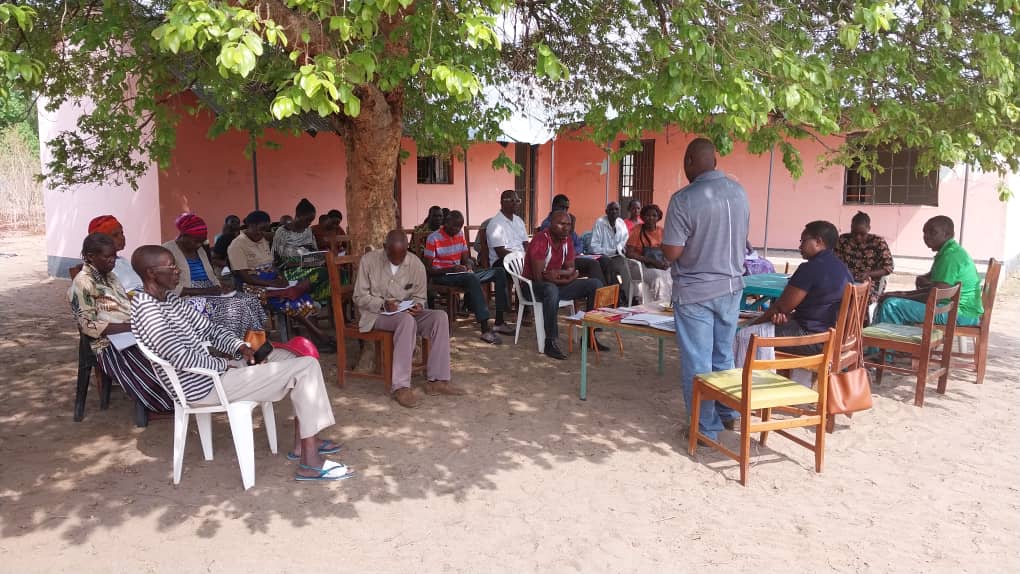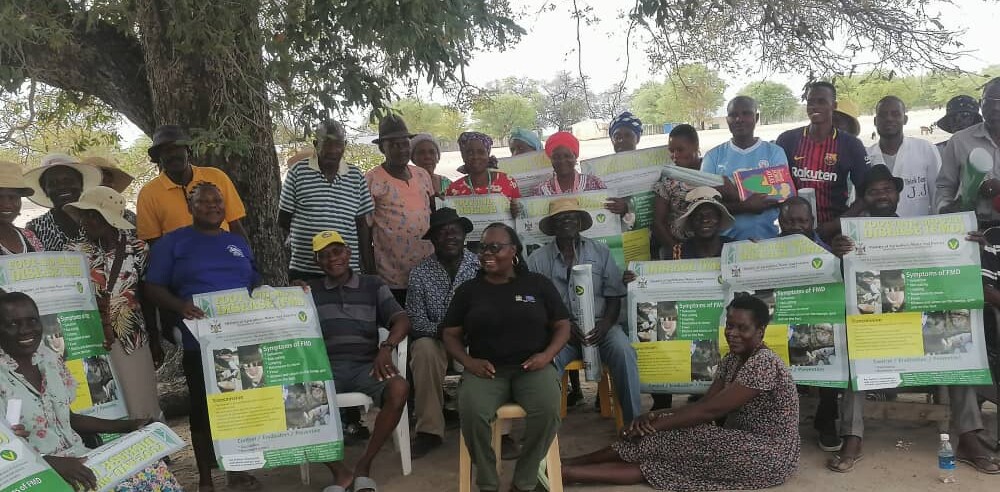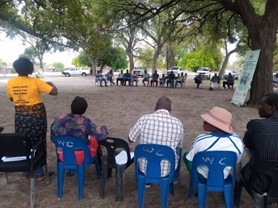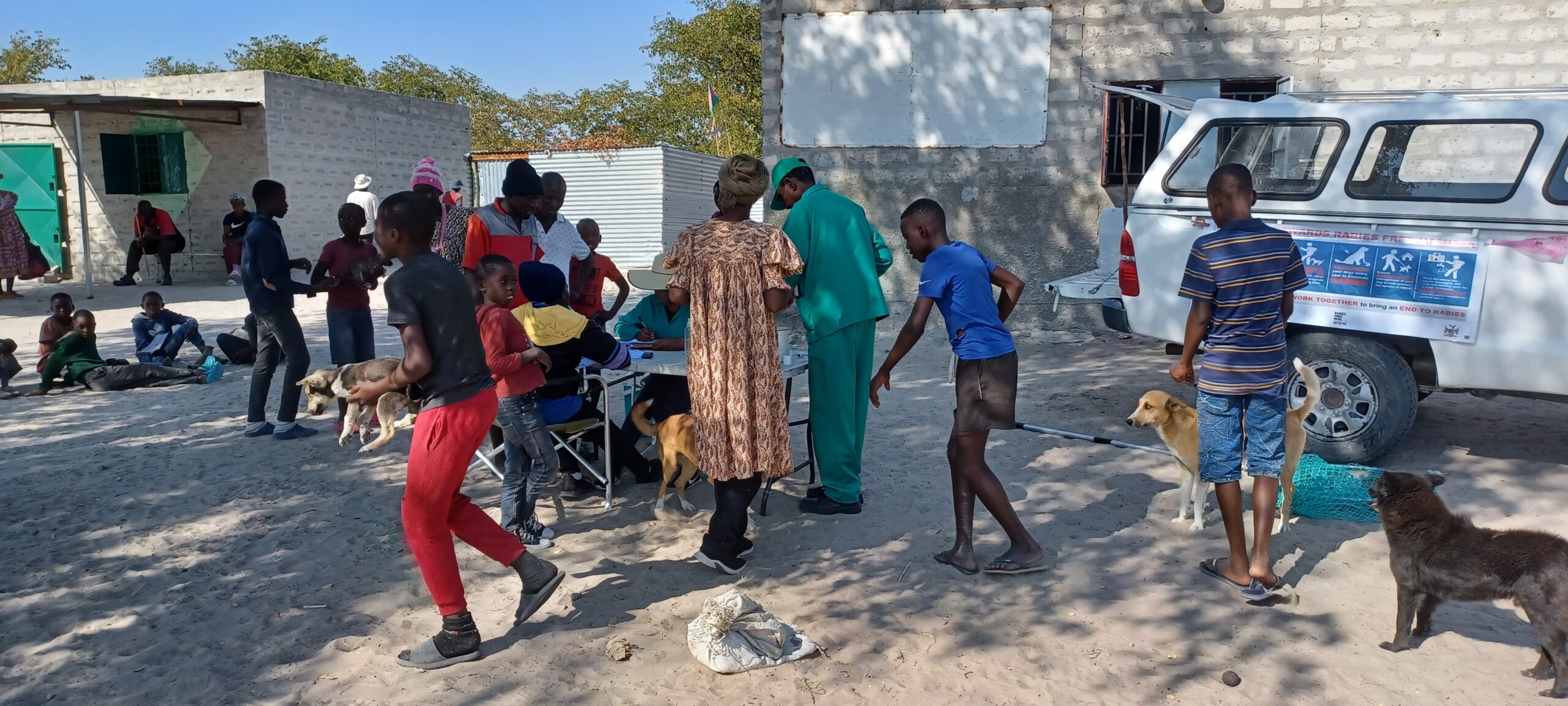
During the month of November 2023, a big learning event took place among livestock farmers in Namibia’s northern region, comprising the Zambezi, Kavango East, Kavango West, Oshikoto, Ohangwena, Oshana, Omusati, and Kunene regions, collectively known as the Northern Communal Areas (NCA). Approximately 2,800 farmers participated in an awareness and education training programme focused on effectively managing their livestock and preventing infectious diseases, particularly Transboundary Animal Diseases (TADs). The NCA in Namibia is home to a human population of 1.2 million with 1.16 million cattle and approximately 860,000 sheep and goats.
The Directorate of Veterinary Services in Namibia organised this training programme with technical support from the WOAH administered One Health approach towards rabies and TADs project (OHRT, funded by Germany) and the Ministry of Agriculture, Water, and Land Reform in Namibia.
A trainer explaining about diseases to the participants. Picture © DVS, Namibia 2023
This comprehensive livestock farmer educational programme focused on two components: dog-mediated human rabies prevention and control and TADs prevention and control, with a specific emphasis on Foot-and-mouth disease (FMD), Peste des petits ruminants (PPR), and Contagious bovine pleuropneumonia (CBPP).
The education awareness programme focused on empowering livestock farmers in the NCAs by providing them with the knowledge to recognise clinical signs of diseases such as FMD, CBPP, Rabies, and PPR, amongst others. Additionally, the programme aimed to sensitise and encourage farmers to promptly report any disease incidences to nearby veterinary offices for thorough investigation and surveillance. This proactive approach aimed to strengthen the early warning and response system for better disease control.
Participants listening attentively to the facilitator. Picture © DVS, Namibia 2023
At the same time, farmers were educated about the importance of implementing farm biosecurity measures and complying with existing regulations when moving livestock around or importing livestock into Namibia. These measures aimed to prevent the introduction of exotic diseases and reduce the risk of outbreaks and spread of endemic diseases within the country. The training also underscored the importance of vaccination programmes for FMD and CBPP.
Given the endemicity of rabies in domestic dogs in the Northern Communal Area, there was a special focus on educating the community. They were informed about the importance of vaccinating their dogs and cats against rabies, responsible pet ownership, proper wound care after a bite, and the need for prompt medical attention following an animal bite. The initiative also emphasised submitting the heads of animals, suspected of rabies to veterinary offices for laboratory testing and reporting any rabies incidents in the community for investigation and control measures.
Dog vaccination campaign in Oshana region, Namibia. Picture © Tenzin Tenzin (WOAH) 2023
Farmers were advised to support rabies elimination efforts by informing pet owners and bringing dogs to designated vaccination points during mass dog vaccination campaigns organised by veterinary authorities. This proactive approach aims to prevent rabies transmission within the dog population and from dogs to humans.
The successful implementation of this education awareness programme signifies a substantial advancement in bolstering agricultural resilience in Namibia’s NCAs. Through the empowerment of farmers with knowledge and the promotion of proactive measures, the initiative contributes to the overall welfare of livestock, ensures food security, and safeguards public health by mitigating the transmission of zoonotic diseases.





